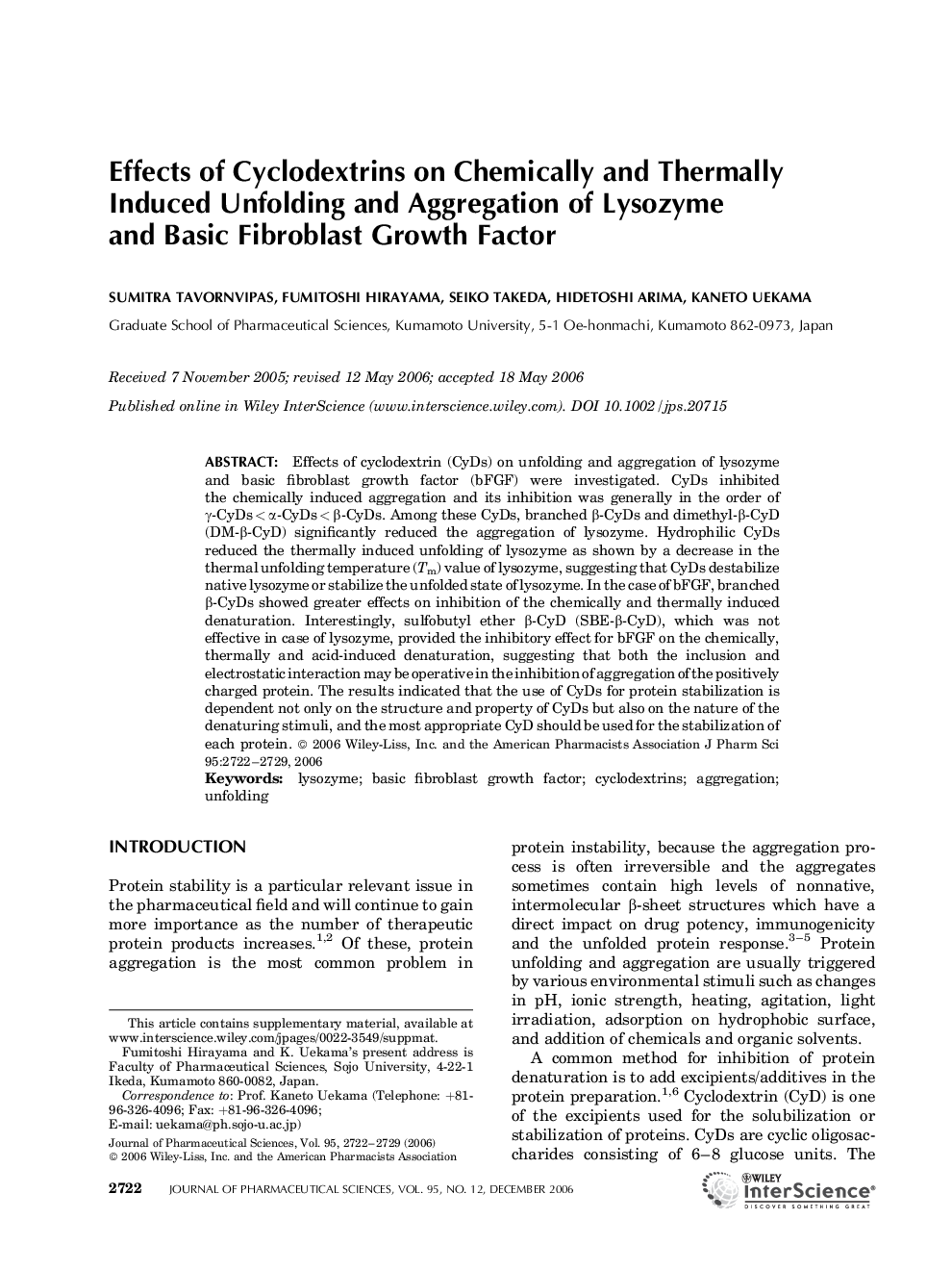| Article ID | Journal | Published Year | Pages | File Type |
|---|---|---|---|---|
| 2487912 | Journal of Pharmaceutical Sciences | 2006 | 8 Pages |
Abstract
Effects of cyclodextrin (CyDs) on unfolding and aggregation of lysozyme and basic fibroblast growth factor (bFGF) were investigated. CyDs inhibited the chemically induced aggregation and its inhibition was generally in the order of γ-CyDsâ<âα-CyDsâ<âβ-CyDs. Among these CyDs, branched β-CyDs and dimethyl-β-CyD (DM-β-CyD) significantly reduced the aggregation of lysozyme. Hydrophilic CyDs reduced the thermally induced unfolding of lysozyme as shown by a decrease in the thermal unfolding temperature (Tm) value of lysozyme, suggesting that CyDs destabilize native lysozyme or stabilize the unfolded state of lysozyme. In the case of bFGF, branched β-CyDs showed greater effects on inhibition of the chemically and thermally induced denaturation. Interestingly, sulfobutyl ether β-CyD (SBE-β-CyD), which was not effective in case of lysozyme, provided the inhibitory effect for bFGF on the chemically, thermally and acid-induced denaturation, suggesting that both the inclusion and electrostatic interaction may be operative in the inhibition of aggregation of the positively charged protein. The results indicated that the use of CyDs for protein stabilization is dependent not only on the structure and property of CyDs but also on the nature of the denaturing stimuli, and the most appropriate CyD should be used for the stabilization of each protein.
Related Topics
Health Sciences
Pharmacology, Toxicology and Pharmaceutical Science
Drug Discovery
Authors
Sumitra Tavornvipas, Fumitoshi Hirayama, Seiko Takeda, Hidetoshi Arima, Kaneto Uekama,
